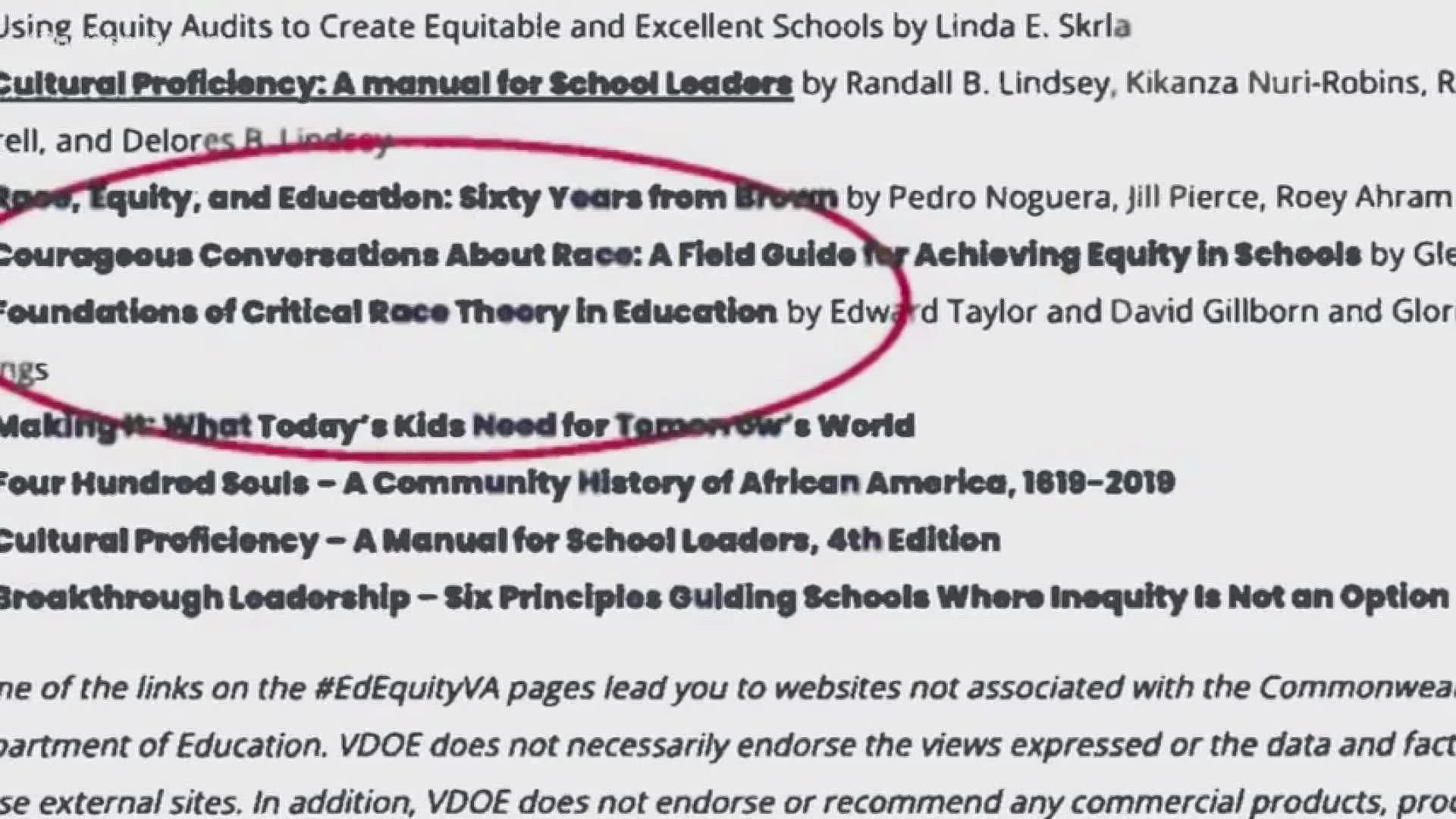WILLIAMSBURG, Va. — Editor's note: The video above is about the Youngkin administration's efforts to remove "inherently divisive concepts" from Virginia public education. It aired on Feb. 25.
A local school board in Virginia has decided against buying some new social studies textbooks because of concerns from some citizens that one of the books encourages “divisive teachings,” including critical race theory.
The Williamsburg-James City County school board voted 4-3 on Tuesday not to buy the books, The Virginian-Pilot reported.
Board Chairman Greg Dowell said he found nothing wrong with the book's overall content. But he said he couldn't vote “yes” because of the controversy around it and the possibility that it could cause further “community division.”
"We are transitioning out of a period of discord in our community and our country, and that takes all of us,” Dowell said.
The textbook of concern is “Government in America: People, Politics and Policy,” which is often taught in advanced placement government and politics classes. It examines current events and public policy, while offering examples of political unrest.
One citizen at Tuesday's board meeting claimed the book was biased and left-leaning. Another said the cover photograph was a form of indoctrination. The photo is of a protest outside the U.S. Capitol with signs reading, “Silence is violence,” “No justice no peace,” and “Stop killing Black people.”
Critical race theory is a way of thinking about America’s history through the lens of racism. There is little evidence that it's being taught to K-12 public school students, though some ideas central to it, such as lingering consequences of slavery, have been.
The proposed textbooks aligned with state education standards and were vetted by the state education department. The vote means that students will have to use textbooks that are at least 12 years old.
Board member Kyra Cook had voted in favor of buying the textbooks.
“I think we deprived our children new textbooks and deprived our teachers of the opportunity to use new materials," she said. "Our staff went through a rigorous process and they identified opportunities to improve.”

